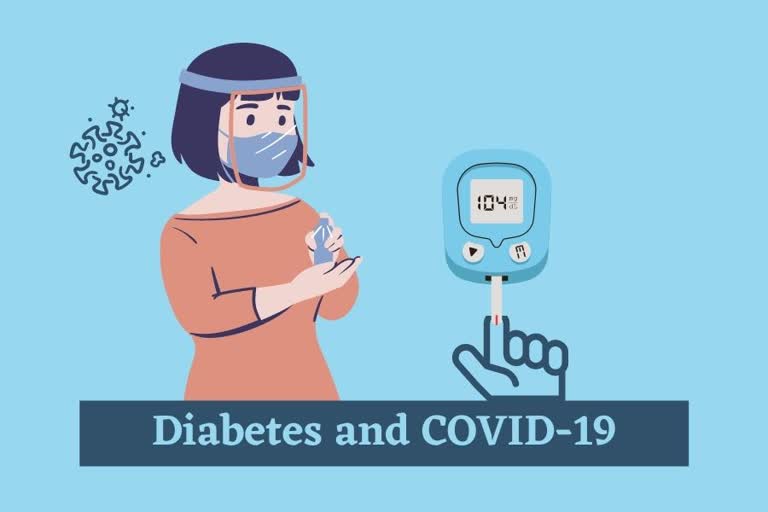India, known as the diabetes capital of the world, is home to one in six diabetics in the world. The country has also suffered significantly from COVID-19.
While on an average, diabetes reduces life expectancy by 4-10 years increasing the risk of death due to other comorbidities, which include heart attacks, kidney failures and infections, COVID infection fast-forwarded that among people with diabetes.
Diabetes increased inflammatory response among COVID patients, spiking their blood sugar levels. It then complicated the course of COVID, resulting in excess morbidity and mortality, as well as posing severe challenges in the recovery of patients.
"During COVID patients were succumbing to it, not because of the original disease, but because despite all other efforts their glucose levels remained high. Thus recognizing glucose as a vital sign very similar to blood pressure and pulse rate, respiratory rate, became more necessary during the pandemic," Jothydev Kesavadev from Jothydev's Diabetes Research Centres, Kerala, told IANS.
"Studies from all over the world show that the majority of the deaths from COVID were linked to high glucose values, and this includes both patients with no diabetesand with the new onset of high glucose," he added.
Further, the use of steroids, to control the serious manifestations of COVID-19, worsened the glucose levels in the patients.
High blood sugar levels, coupled with increased use of steroids, also led to other complications such as an unprecedented surge in cases of Mucormycosis, commonly known as Black Fungus. It is a fungal infection, which occurs by inhalation of spores and can disseminate to various organs rapidly.
According to a recent study, published in Diabetes and Metabolic Syndrome: Clinical Research and Reviews, more than 86 percent of mucormycosis or black fungus cases related to COVID in India, had uncontrolled glucose values.
"While the COVID cases are closely related to diabetes, mucormycosis is also very closely related to diabetes in COVID. Whenever the glucose is high, there is a deranged immune mechanism and in the presence of infection it is persuaded rapidly," Kesavadev said.
Also Read:What Should Be The Exercise Regime For Type 2 Diabetes?
Another study, published in the same journal showed that people with Type-2 diabetes who also suffered COVID-19 were more likely to experience severe fatigue than those who did not have the infectious disease, emerging as a major roadblock in the recovery of patients infected with SARS-CoV-2.
